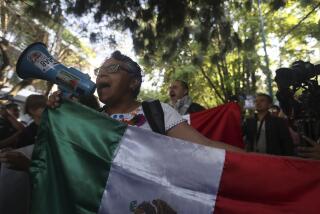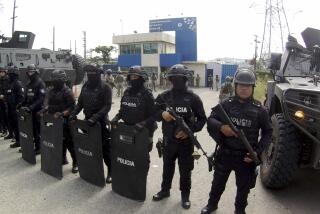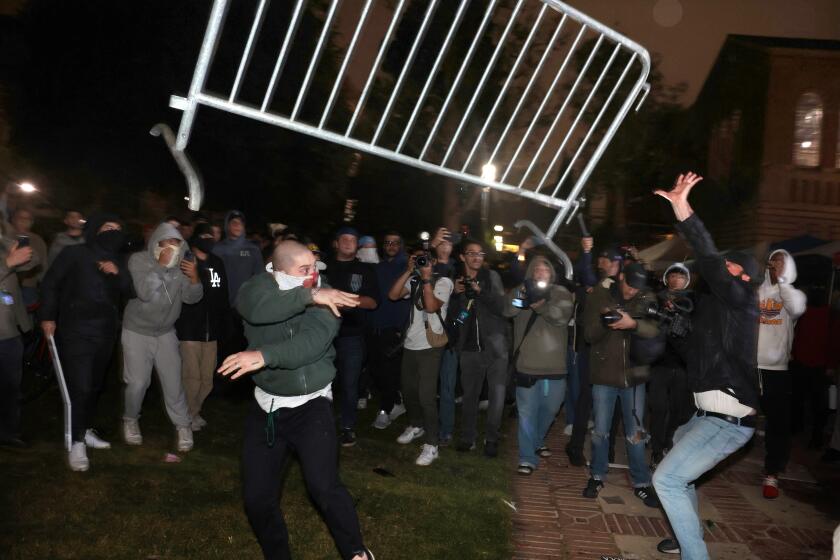The Americas’ watchdog
To no one’s surprise, Ecuadorean President Rafael Correa is upset with the Inter-American Commission on Human Rights, a watchdog group that has pushed to protect indigenous leaders, journalists and civil society organizations in the Western Hemisphere from abuses. And the feeling appears to be mutual. The commission has rightly denounced Correa’s efforts to curb freedom of expression and jail critics of his administration. It also dared to weigh in on Venezuela’s attempt to ban an opposition candidate from running for office against President Hugo Chavez.
Now Correa, along with Chavez and Bolivian President Evo Morales, is asking the Organization of American States to restrict the work of the commission, which he characterizes as a tool used by the United States to influence sovereign governments. That’s nonsense. Established in 1959, the autonomous commission is one of the OAS’ most important bodies. Human Rights Watch credits it with helping to save thousands of lives in Colombia, Haiti and elsewhere by filing protective orders with governments, requesting that officials guarantee the safety of individuals facing abuse or death threats.
Unfortunately, OAS Secretary-General Jose Miguel Insulza yielded to pressure and agreed last week to call for a meeting in six months to consider two draft proposals aimed at limiting the reach of the commission by curbing its authority and restricting its budget. They would ultimately strip the commission of having the final say in deciding how it monitors countries. The OAS’ 35 member nations should reject both plans.
The commission’s powers have remained unchanged for more than 50 years for good reason. Its independence is its strength. Allowing member states, including those that have been the target of critical reports, to rewrite the rules or set new limits on the commission’s powers is an invitation for opponents to settle scores. Just consider the so-called reforms under consideration. One plan would allow the commission to speak out only on those cases involving life or death, and bar it from intervening on behalf of jailed journalists or jurists facing abuse. The other plan, backed by Correa, would limit funding to the special rapporteur for freedom of expression.
Clearly, some governments in the region are angry and hope to undermine the commission. That should not carry the day. Independence is essential to the continued success of the Inter-American Commission on Human Rights, and the hemisphere’s nations should rally to protect it.
More to Read
A cure for the common opinion
Get thought-provoking perspectives with our weekly newsletter.
You may occasionally receive promotional content from the Los Angeles Times.






